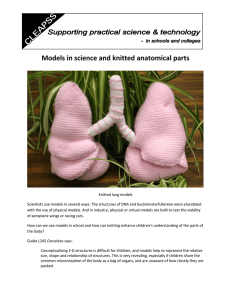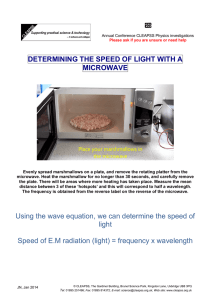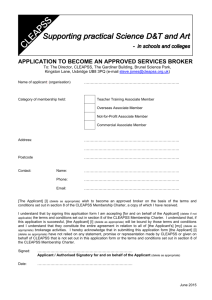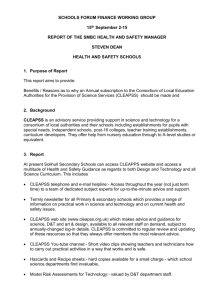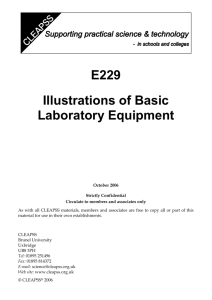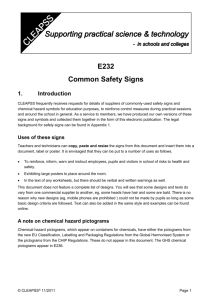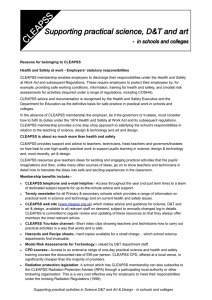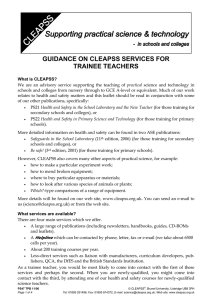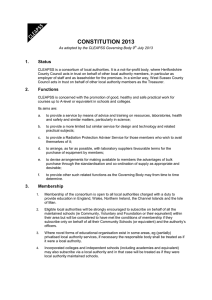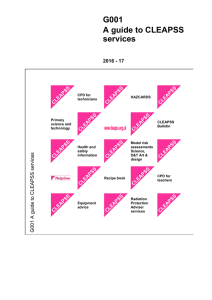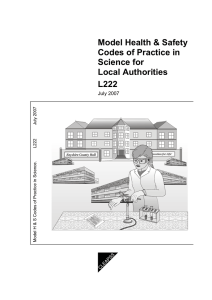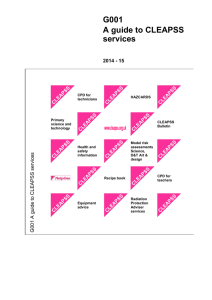Models of the gut (and anatomical knitting ideas)
advertisement
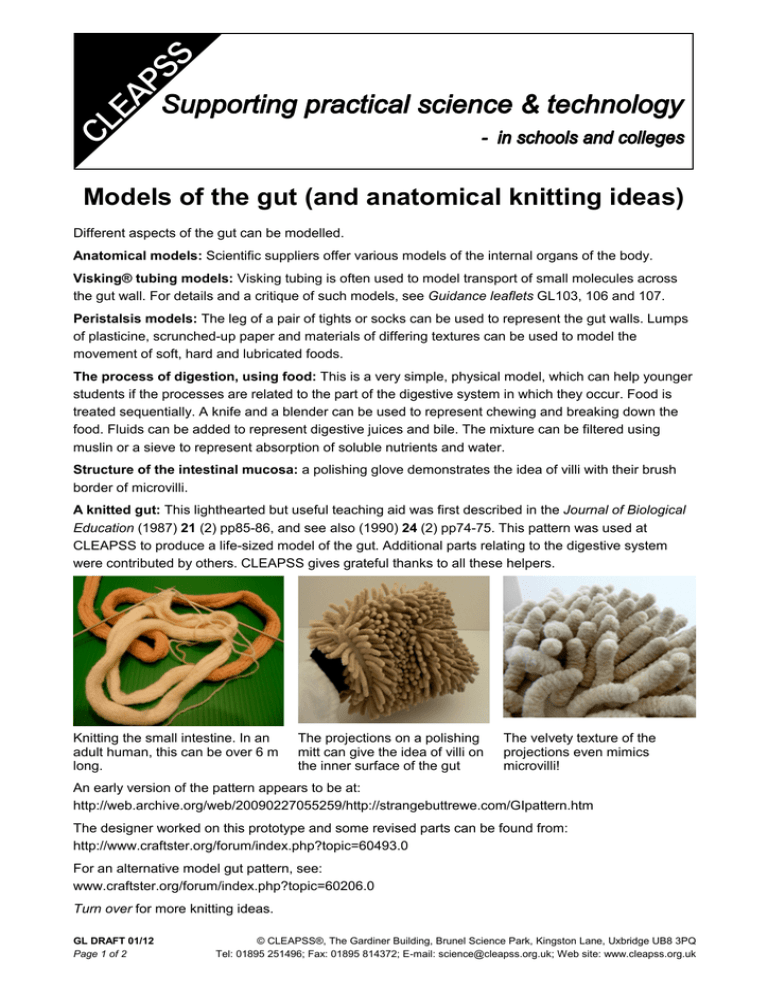
Models of the gut (and anatomical knitting ideas) Different aspects of the gut can be modelled. Anatomical models: Scientific suppliers offer various models of the internal organs of the body. Visking® tubing models: Visking tubing is often used to model transport of small molecules across the gut wall. For details and a critique of such models, see Guidance leaflets GL103, 106 and 107. Peristalsis models: The leg of a pair of tights or socks can be used to represent the gut walls. Lumps of plasticine, scrunched-up paper and materials of differing textures can be used to model the movement of soft, hard and lubricated foods. The process of digestion, using food: This is a very simple, physical model, which can help younger students if the processes are related to the part of the digestive system in which they occur. Food is treated sequentially. A knife and a blender can be used to represent chewing and breaking down the food. Fluids can be added to represent digestive juices and bile. The mixture can be filtered using muslin or a sieve to represent absorption of soluble nutrients and water. Structure of the intestinal mucosa: a polishing glove demonstrates the idea of villi with their brush border of microvilli. A knitted gut: This lighthearted but useful teaching aid was first described in the Journal of Biological Education (1987) 21 (2) pp85-86, and see also (1990) 24 (2) pp74-75. This pattern was used at CLEAPSS to produce a life-sized model of the gut. Additional parts relating to the digestive system were contributed by others. CLEAPSS gives grateful thanks to all these helpers. Knitting the small intestine. In an adult human, this can be over 6 m long. The projections on a polishing mitt can give the idea of villi on the inner surface of the gut The velvety texture of the projections even mimics microvilli! An early version of the pattern appears to be at: http://web.archive.org/web/20090227055259/http://strangebuttrewe.com/GIpattern.htm The designer worked on this prototype and some revised parts can be found from: http://www.craftster.org/forum/index.php?topic=60493.0 For an alternative model gut pattern, see: www.craftster.org/forum/index.php?topic=60206.0 Turn over for more knitting ideas. GL DRAFT 01/12 Page 1 of 2 © CLEAPSS®, The Gardiner Building, Brunel Science Park, Kingston Lane, Uxbridge UB8 3PQ Tel: 01895 251496; Fax: 01895 814372; E-mail: science@cleapss.org.uk; Web site: www.cleapss.org.uk Knitting other parts of the anatomy and some biological models Keen knitters may find other patterns on the internet. These references have been suggested to CLEAPSS but not checked: Neuron patterns for knitting or crochet are available: http://knitaneuron.blogspot.com/p/patterns.html Here is a knitted uterus (not anatomically accurate, though!): www.knitty.com/ISSUEwinter04/PATTwomb.html Here is a pattern for a heart: www.knitty.com/ISSUEwinter08/PATTheart.php It is also possible to knit DNA: http://kimberlychapman.com/crafts/knit-patterns-dna.html Some further knitted anatomy references Many examples of knitted parts of the anatomy are displayed on the internet without published patterns. The collection below was suggested by a creative friend. The Museum of Scientifically Accurate Fabric Brain Art is fascinating: http://imaginaryfriends.typepad.com/ This includes an incredible, anatomically-correct knitted version by Karen Norberg: http://imaginaryfriends.typepad.com/neuroscienceart/2006/09/karen_norberg_1.html A spectacular knitted skeleton is displayed at: http://bencuevas.wordpress.com/2010/10/21/transcending-the-material/ A knitted rat dissection: http://streetanatomy.com/2009/01/06/rat-dissection-in-knit/ To purchase patterns for this and other dissection models: www.etsy.com/shop/aKNITomy An Anatomical Knitting facebook group: www.facebook.com/pages/Anatomical-knitting/144206052266830 A flickr stream of knitted anatomy: www.flickr.com/photos/47777583@N04/galleries/72157623491883736 A general blog post on knitted anatomy: www.corporeality.net/museion/2005/10/29/reproducing-human-anatomy-in-knitting/ This site sells ready-made items and may offer inspiration to crocheters: www.etsy.com/shop/AnOptimisticCynic?ref=pr_shop_more Please note that CLEAPSS does not accept responsibility for material from external sources. Really keen knitters may like to attempt their own designs. CLEAPSS would be delighted to hear about any such projects. Non-knitters may wish to contribute French knitting, crochet, macrame or pompom making. We can also provide a couple of patterns designed by creative colleagues. Please email your ideas or comments to science@cleapss.org.uk. GL DRAFT 01/13 Page 2 of 2 © CLEAPSS®, The Gardiner Building, Brunel Science Park, Kingston Lane, Uxbridge UB8 3PQ Tel: 01895 251496; Fax: 01895 814372; E-mail: science@cleapss.org.uk; Web site: www.cleapss.org.uk
